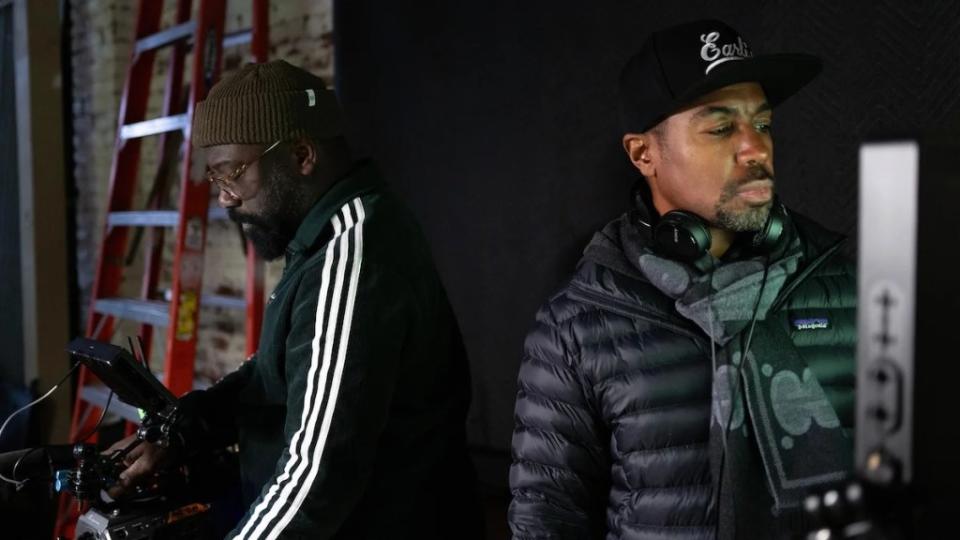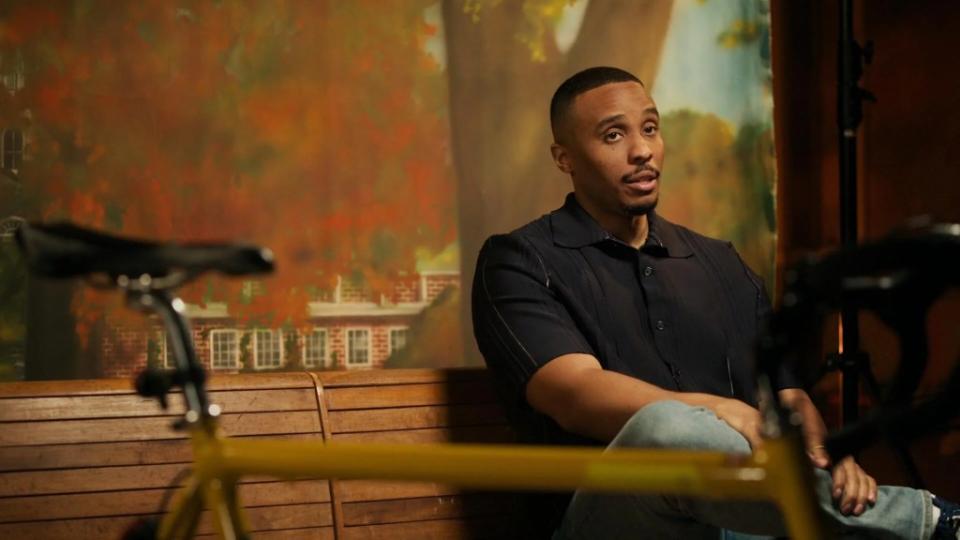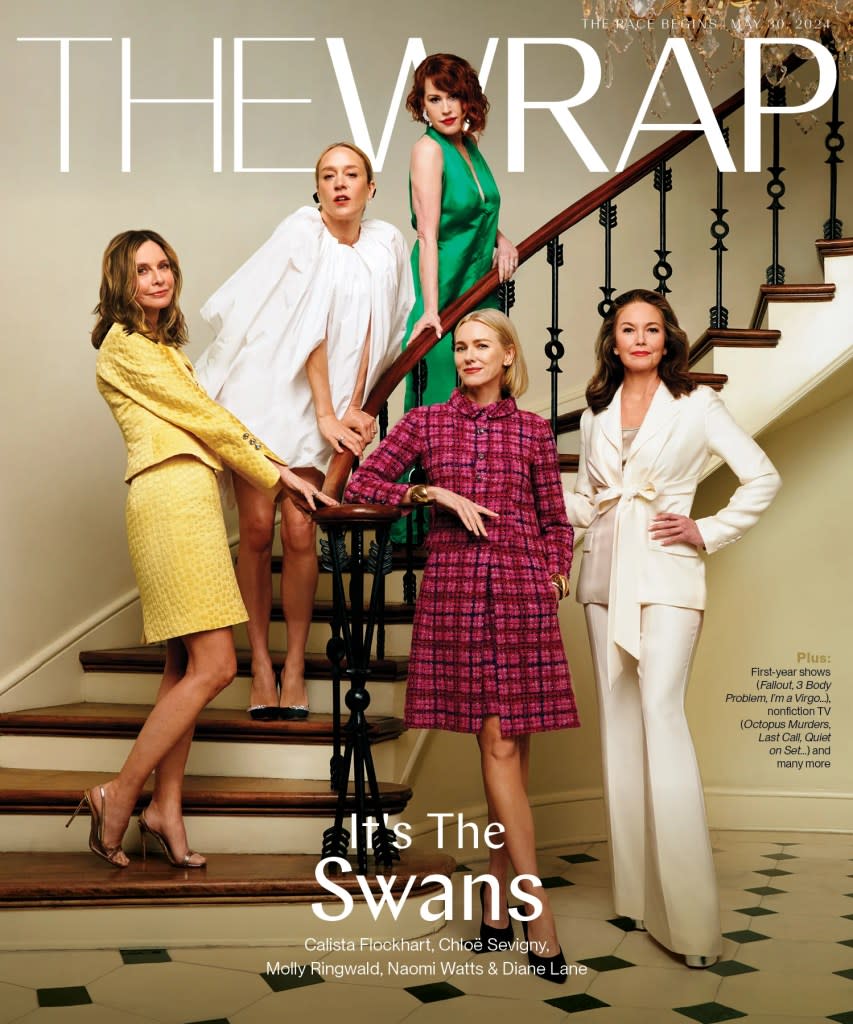Prentice Penny Says ‘Black Twitter’ Is a ‘Star Wars’ Story and Elon Musk Is the Emperor
“Insecure” showrunner Prentice Penny made his nonfiction directing debut with “Black Twitter: A People’s History,” a three-part Hulu series tracing the vibrant and creative Black community that used Twitter for humor but also to fuel social movements like Black Lives Matter and #OscarsSoWhite. While Penny was working on the series, Elon Musk bought the social media platform, leading to an exodus of Black employees and a sense that the community as they knew it could be irrevocably changing.
Penny thinks that the forum may have taken a huge hit, but the voices that use it will continue to be heard.
The series has a three-part structure: The rise of Black Twitter, then the social movements it helped propel, then the uncertainty that came with Elon Musk’s purchase. Were you thinking of a structure like that from the start?
When I signed on, it was 2021 and Elon hadn’t bought the platform yet. And it was at first tricky to figure out the structure. Black Twitter is this really amorphous thing: It’s not a person or a place, it’s like trying to catch air.
But the doc is based on an article that Jason Parham wrote for Wired magazine — and as I kept reading Jason’s story, my narrative brain kept going to, “Oh, it’s a coming-of-age story, right?” I kind of equate it to “Star Wars.” Like, the first episode is like Luke on his farm trying to figure out what this is and being introduced to a much larger, dangerous presence out there. Act 2 is sort of our “Empire,” trying to learn the Force and the dream of being of a rebellion. And then the third episode is Black Twitter stepping into its power in the way that Luke does in “Jedi.”
And obviously, I now joke that Elon is the Emperor. (Laughs) But the coming-of-age story to me felt very real. That’s sort of how we figured out what the story was.

Did you find yourself learning things you didn’t know about Black Twitter while doing the interviews?
It wasn’t so much learning stuff about Black Twitter, it was hearing insights I hadn’t thought about. Like when Jinx (journalist/podcaster Brandon Jenkins) says, “If he wanted to, he could turn it off.”
There was a moment where the realness of that kicked in. Because so much of Black culture is oral, right? I had taken my daughter to New York and we went to Ellis Island, and I was like, “You’re not gonna find our family in these books of logs. Those documents don’t even exist.”
The interesting about Twitter is, there is an actual log of it. But if he decided to turn it off, everything would be gone. So even though it exists in a digital way, we could be talking about Black Twitter 20 years from now in an oral tradition, which is so bizarre considering that it did exist. So when you hear things like that, it was less about learning about Black Twitter in and of itself, but just sobering, profound thoughts about the way America is, or the way this platform is, or about our existence. And so that just confirmed to me why we were making the doc with so much urgency.
How different do you think the social and cultural movements of the last 15 years would have been without Black Twitter?
Oh, I don’t think they would’ve happened. I think about things like Rodney King in the ’90s. Those things have been happening for years to Black people in this country. But most people didn’t have video cameras ready to roll at that time, right? Baratunde (Thurston) says in the doc, now technology allows us to all be press immediately. It allows us all to be publishers immediately and document our stories. Sometimes it’s gonna be a Trayvon Martin, sometimes it’s gonna be small.
And what we also tried to show in the doc wasn’t people trying to be special. It was CaShawn Thompson saying, “I don’t care what they’re saying about Serena Williams. Black girls are magic.” And now that’s a phrase that we don’t even think about anymore.
Or saying, “Hey, you know, our lives matter.” It wasn’t a thing of trying to create a social movement. It was just saying, “I’m feeling this.”
Or April Reign saying, “Oscars so white.” She wasn’t trying to change the Academy (laughs), she was just making a comment about what she saw. If she had said that in her living room to her friend, that doesn’t become anything, right? The same with all these other things. Without a platform where we can all support and confirm the same thoughts we’re all having, I don’t think those things move the needle.

The final moments of Episode 3 almost feel like an elegy for Black Twitter. Are you hopeful that it can survive?
Yeah, but I think it’s bigger than that. We are trying to make the point that the energy of Black Twitter has left the matrix. In “The Matrix,” when Neo learned to fly, he wasn’t bound by the same rules anymore. To me, Black Twitter doesn’t need the platform to exist. It’s bigger than a group of people on a platform — it’s an energy that exists way outside the platform now.
This story first appeared in the Race Begins issue of TheWrap’s awards magazine. Read more from the issue here.
The post Prentice Penny Says ‘Black Twitter’ Is a ‘Star Wars’ Story and Elon Musk Is the Emperor appeared first on TheWrap.



